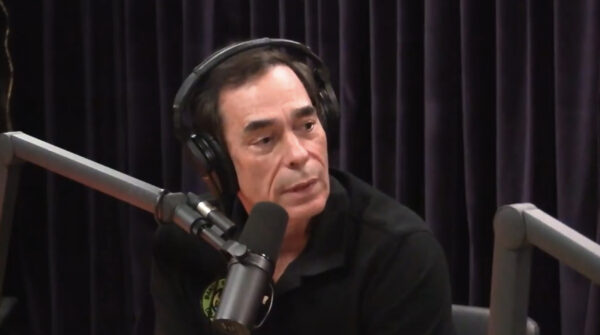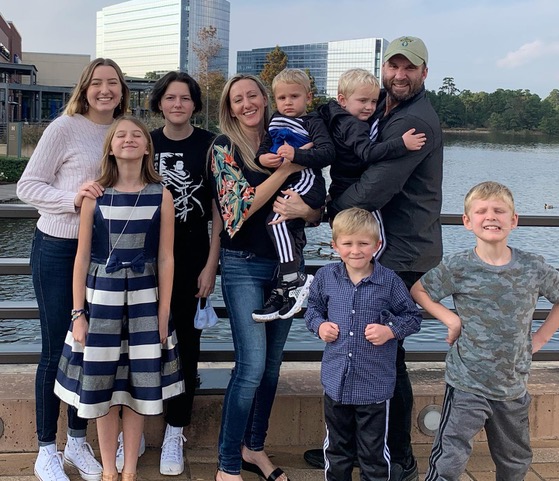A New Approach to Traumatic Brain Injury
Traumatic brain injury, or TBI, is a wound that is difficult to comprehend and impossible to see from the outside, and affects a more diverse set of individuals than one might think.
Active-duty military and veterans are the most obvious population to endure TBI. They most often suffer from the condition as a result of training and combat exposure over time. However, the condition affects athletes and civilians at an alarming rate as well.
According to the Centers for Disease Control and Prevention, 1.5 million Americans experience TBI annually. The symptoms of TBI often manifest as anxiety, depression, anger, and cognitive issues. Traditional treatments have sought to address these symptoms with conventional therapy and medication. Unfortunately, this approach often only exacerbates TBI, instead of attacking the underlying cause of the condition. While the medical and scientific literature has been available for years, it hasn’t been applied to TBI until now.
Dr. Mark Gordon, a physician who has been practicing endocrinology for the past 20 years, has focused his efforts on TBI. Endocrinology relates to the endocrine system which is responsible for controlling hormones, which are important chemical messengers.
Gordon himself has endured at least six separate head traumas in his lifetime. Years ago, his TBI led to clinical depression. In the course of his own research, he discovered a novel way to treat his injury. After undergoing laboratory tests, he found that he had hormonal deficiencies that were causing his depression. He believed the inflammation in his brain from his multiple head traumas was the underlying cause.
While Gordon was in throes of depression, he read a book on hormones. He had lab tests done, and found that he had deficiencies in testosterone, thyroid, and growth hormone. Once these hormones were restored to healthier levels, he began to feel better.

Gordon’s first head trauma occurred when he was 4 years old. At age 13, he was hit by a car while riding his bicycle. Three separate car accidents and eight years of martial arts also took their toll. The minor traumas to the brain add up over time in combination with significant accidents, and all contribute to TBI.
“You can either have 10 dimes or a dollar. They both equal a hundred,” Gordon explained.
Inflammation and Hormones
It wasn’t until Gordon was in his mid- to late-40s that he started to develop issues. Throughout his research, he discovered that people can develop TBI as late as 17 years after their injury. TBI creates inflammation, which changes brain chemistry; that change can manifest as depression, anxiety, insomnia, or a host of other symptoms.
In 2004, Gordon was preparing a lecture on the brain and hormones. He stumbled upon a couple of articles, one of which was from Turkey. In this specific treatise, researchers found that there were severe hormone deficiencies in boxers that were leading to mood and personality issues. It seemed that inflammation in the brain caused pituitary issues that, in turn, led to anger, anxiety, depression, and other conditions. Originally trained as a family physician, neuroendocrinology now commanded his attention.
“That was my epiphany article or my ah-ha moment,” Gordon said.

Gordon’s orthopedic work as a physician led him to work in the NFL. He treated retired players from 1997 through 2007, and his work drove him to start treating active duty military in 2009. Through the course of his work, he met a Green Beret named Andrew Marr.
Marr was a Special Forces engineer and had spent a large part of his career detonating and disposing of explosives. On his fourth tour of duty in Afghanistan, a large explosion knocked him unconscious. However, it would be the cumulative effect of small explosions over time that ultimately triggered his TBI.
Marr had undergone a variety of treatments, and at one point was on more than a dozen medications. Furthermore, he was struggling with alcoholism and opioid addiction to cope with the anxiety and depression his TBI had been causing. The two met in 2015, and Gordon ran his bloodwork.
After discovering that Marr had hormone deficiencies, he began a treatment plan based on hormone therapy and natural supplements and showed massive improvement. He and his brother Adam recount the experience in their book “Tales From the Blast Factory” and now work to connect other veterans to Gordon and his treatment method at Millennium Health.
The results from Gordon’s other patients also have been promising. According to a 2019 summary report on 459 individuals, 78 percent of them considered themselves 50 percent improved by the end of the year, and 4.6 percent were 100 percent better. The 10 to 20 percent who felt that they hadn’t benefited from the protocol were the individuals who had been on the most medications.
Results also showed that age doesn’t seem to play a factor in TBI recovery. The oldest patient was an 84-year-old Vietnam veteran who reported feeling 100 percent better following his treatment protocol.

While Marr’s TBI was the result of a history of explosions, the condition can occur from certain medications, radiation, and surgery that also can cause brain inflammation. One doesn’t have to lose consciousness to develop the condition. Moreover, you don’t need to have symptoms of a concussion to have a traumatic brain injury.
While direct physical blows to the head are the most obvious cause, TBI can also be caused by psychological conditions such as post-traumatic stress.
“That’s why you can have a person who has never had any physical trauma, a person who’s never been to war, never played sports, but gets into a situation where they’re under chronic stress,” Gordon said.
Contact Sport
It’s not just veterans, pugilists, or NFL players who are suffering. Julianna Harpine, 29, is a physical therapist in Pennsylvania and one of the subjects of “Quiet Explosions: Healing the Brain.” For 13 years, she was a competitive gymnast. Concussions weren’t discussed in the gymnastics world, and she didn’t expect head injuries to be a risk of the sport. However, she would experience several blows to the head.
“I always get, ‘Well, gymnastics isn’t a contact sport.’ People forget gymnastics is a contact sport—with the ground,” Harpine said.
While a freshman in high school, she endured her first diagnosed concussion. She was tumbling and flew out of a pass, hitting the back of her head on the floor. She took some ibuprofen, and went back to practice. The next night, she blacked out in midair, and landed flat on her face.
Harpine experienced sensitivity to light and noise for seven months following her concussion. Over time, she had several smaller concussions, and in 2013, she experienced another severe blow to the head in competition.
Following her last concussion, Harpine began experiencing depression, anxiety, and suicidal thoughts. Both the physical and psychological symptoms of TBI had a significant impact on her daily life. She had just been accepted to graduate school, but often missed school and work.
“You can’t see it by looking at someone. When people looked at me, they saw a healthy 20-something-year-old girl. What they didn’t see were the struggles internally or the struggles behind closed doors. After a while, you just try to do life to the best of your ability, but they don’t see what happens outside of you showing up and slapping a smile across your face,” Harpine said.
Harpine underwent conventional treatments, and ended up on a plethora of medications, as Marr had. But the meds only worsened her symptoms. In the spring of 2014, a family friend introduced her to Gordon and his treatment protocol, which she responded to with incredible success.
“I got my energy back, my personality back. I wasn’t fighting to stay awake anymore. I was able to function again. I was able to go back to work and back to school,” Harpine said.
A Wider Audience
Emmy Award-winning director Jerri Sher was contacted by a friend who was working on Marr’s book. She knew Sher had a passion for documentaries about social issues, and urged her to read the book and adapt it into a film. When Sher and Marr met, he gave her the rights to make a movie based on “Tales From the Blast Factory.”
Sher agreed to do the movie under one condition: the subjects of the film would be one-third military, one-third athletes, and one-third civilians. She also needed to speak with Gordon. After their discussions, she learned that his successes weren’t getting enough public attention.
Sher herself has experience in the world of TBI. Her husband contended with the condition after open heart surgery 24 years ago. During the surgery, his brain was deprived of oxygen. Afterward, he began experiencing many similar symptoms that surface for veterans and athletes with TBI.
Her documentary, “Quiet Explosions: Healing the Brain,” sheds light on TBI through interviews with 10 individuals including Harpine, Marr, Gordon, and other medical experts. The film offers insights into a diverse array of patients and paints a vivid picture of what TBI looks like.
“I knew that I could make a huge impact by telling this story through the medium of film,” Sher said.





